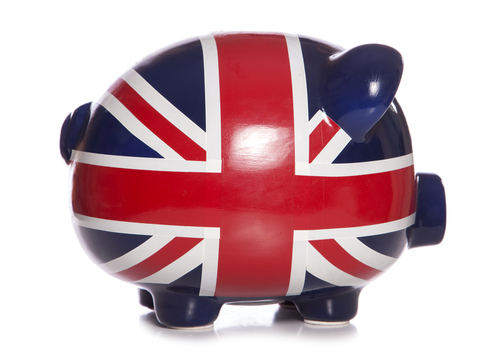Saving - Banking
YourMoney.com Mailbag: What’s a credit union?

Dear YourMoney.com,
I’m tired of the non-existent returns on my savings account. I’ve heard that I may be able to secure better rates by saving with a credit union. I’ve not come across one of these before – what are they, what services do they offer, what rates of interest do they pay, are they ‘safe’ and where can I find one?
Susan, 29, Herts
Let’s break your question down into easily manageable chunks.
- What’s a credit union?
Despite a lack of mainstream attention, credit unions are fast becoming a trusted and valued alternative to established lenders for borrowers and savers alike.
Credit unions are not-for-profit financial cooperatives, which provide credit, financial protection and rewards to their memberships. There are currently over 500 in the UK. Members elect managers at regular intervals.
Credit unions remained on the peripheries of Britain’s financial services for years, due to restrictions on membership and interest payments.
Previously, credit unions had ‘common bond’ restrictions, meaning they could only be formed by people with something particular in common. This could be an area of residence, club membership or shared employer/profession. Credit unions were also prohibited from paying interest on savings. Savers could attract a retrospective dividend at most.

Wellness and wellbeing holidays: Travel insurance is essential for your peace of mind
Out of the pandemic lockdowns, there’s a greater emphasis on wellbeing and wellness, with
Sponsored by Post Office
However, as of January 2012, credit unions can pay interest on savings, and the common bond obligation has been jettisoned by the Financial Conduct Authority (FCA) – although a credit union will certainly have its own membership requirements. Small organisations, such as SMEs, community groups and housing associations, may join credit unions too.
- What services do credit unions offer?
Much like a traditional bank, credit unions typically offer three primary services; loans, savings accounts and current accounts.
Loans
Providing loans is the primary raison d’etre of credit unions. Loans are only offered to members, and some credit unions will have specific borrower eligibility requirements associated with membership (such as length of membership and amount previously saved). Unsecured loans are generally offered for up to five years, secured loans up to 10 years.
Credit union loans vary in size, typically to a maximum of around £3,500, although due to their increasing popularity credit unions are lending ever-larger sums. Some have even offered mortgages in recent years.
Loans can also be significantly smaller than the minimum sums offered by banks. Rates are typically higher than those charged by banks and building societies but lower than payday lenders, and are capped by law at 26.8 per cent APR. Interest is typically charged on the balance of the loan, meaning repaying the sum weekly results in a smaller debt than repaying fortnightly.
In the event of a borrower’s death, the debt is declared null.
Savings Accounts
Savings accounts are offered by all credit unions. Savers can deposit as much as they like. Their money is then lent to other members of the credit union, with any profit accrued by the union given back to savers in the form of interest or dividends.
Current Accounts
Current accounts are the least prevalent credit union service, but they are increasingly becoming standardised. They are rudimentary and do not come with overdraft facilities or chequebooks, but direct debits and standings orders can be set up, and deposits (including wages) paid in.
- What rates of interest do credit unions pay?
The returns (whether dividends or interest) offered by credit unions are variable, and differ from credit union to credit union.
“It could be 8 per cent if the credit union’s done very well – or it could be zero,” explains Helen Saxon of MoneySavingExpert.com.
“However, it’s likely that most credit unions would offer you somewhere between 1 and 3 per cent.”
- Are credit unions ‘safe’?
Credit unions are licensed, authorised and regulated by the FCA. As with savings accounts offered by banks and building societies, they are fully covered by the Financial Services Compensation Scheme (FSCS) – meaning in the event a credit union fails, saver deposits of up to £75,000 will be refunded.
- How can I find a credit union?
You can find your local credit union by clicking here.
[article_related_posts]